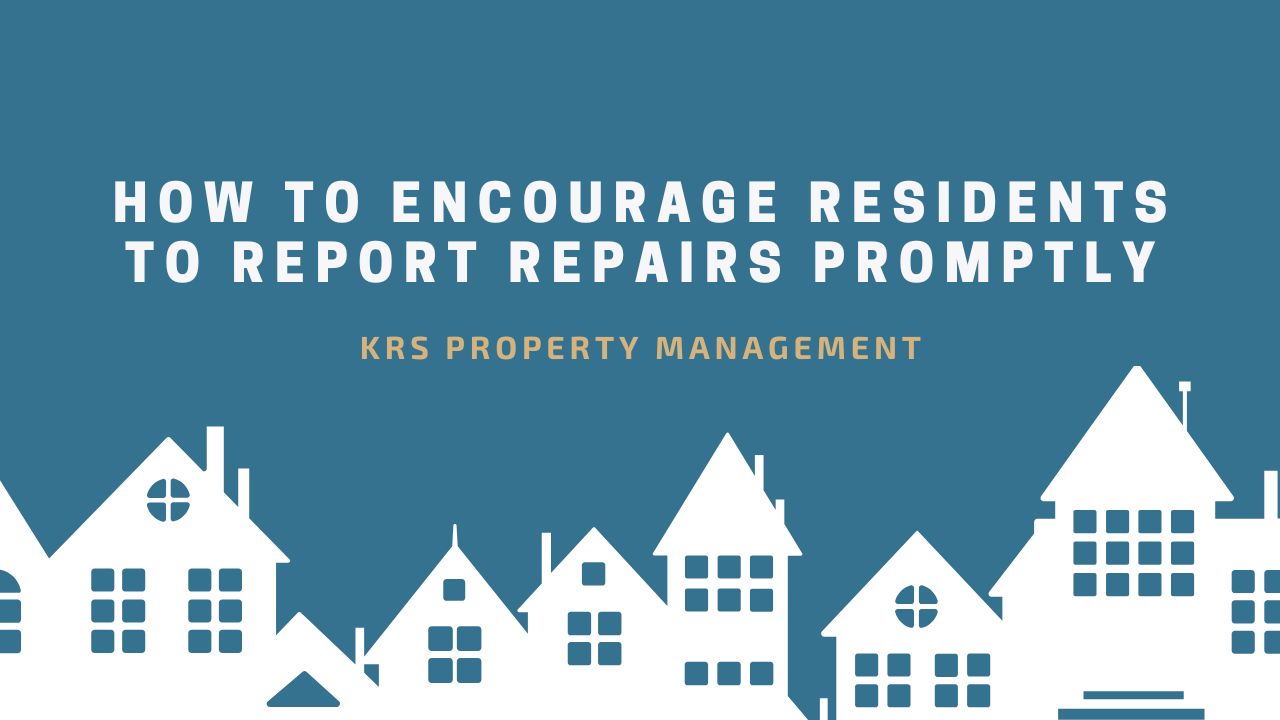
Key Takeaways
Emphasize the Importance of Timely Reporting: Encourage tenants to report maintenance issues as soon as they arise to prevent minor problems from escalating into major, costly repairs.
Foster Open Communication: Create a culture where tenants feel comfortable reporting issues without fear of blame or repercussions.
Simplify the Reporting Process: Make it easy for tenants to report repairs by providing multiple channels, such as online portals, email, or phone.
Educate Tenants on Maintenance Responsibilities: Inform tenants about what constitutes a maintenance issue and the importance of early reporting.
For rental property owners, maintenance issues can quickly escalate from simple fixes to expensive problems—often depending on how soon they're reported.
When residents delay reporting repairs, it can lead to significant property damage, higher costs, and even legal complications if the issue affects livability.
One of the most common challenges landlords face is encouraging tenants to speak up early. Achieving this goes beyond open communication—it requires building trust, setting clear expectations, and making the reporting process as easy and accessible as possible.
This guide from KRS Holdings, offers practical strategies to help landlords foster a proactive maintenance culture, encourage timely repair reports, and protect their rental investments.
Why Prompt Repair Reporting Matters
When a small leak under the sink goes unreported, it can quickly escalate into water damage, mold, or structural issues.
Similarly, a malfunctioning heater during winter or a broken door lock can compromise comfort and safety, potentially violating local housing codes. These problems aren’t just expensive—they can impact your reputation as a landlord.
Prompt reporting allows you to:
Prevent minor issues from escalating
Control maintenance costs
Ensure the safety and satisfaction of your residents
Maintain compliance with local laws and rental standards
Understanding this urgency is the first step. The next is ensuring your residents understand it, too.
Create a Culture of Open Communication
Residents need to feel comfortable communicating problems to their landlord or property manager.

If your residents are hesitant to report issues—perhaps because they fear being blamed, charged, or ignored—they are more likely to wait until the problem becomes serious. Create a culture where repair requests are welcomed.
Let your residents know that you appreciate them alerting you to issues. When someone does report a repair, thank them. Avoid any tone of blame or frustration.
If residents feel that they’re helping you protect the property (rather than creating inconvenience), they’re more likely to notify you promptly in the future.
This begins even before they move in. Include clear language in your welcome package, orientation materials, or rental agreement about the importance of reporting maintenance issues. Use friendly, non-intimidating language that makes them feel like partners in caring for the home.
Set Clear Expectations from the Start
Often, residents don’t report repairs because they’re unsure what qualifies as a problem worth mentioning. Some might ignore minor leaks or electrical glitches, thinking it’s not urgent enough. Others may be uncertain whether they’re responsible for fixing it themselves.
Clarify what should be reported and how. Include a repair reporting guide in your lease packet or house rules that outlines examples of issues to report—like water leaks, pest sightings, heating/cooling problems, or broken appliances. Make it known that no issue is “too small” to bring up.

You can also explain which repairs fall under your responsibility and which fall under theirs (if any). For example, you might expect residents to change light bulbs or unclog minor drains, but not to repair broken faucets or malfunctioning HVAC systems.
Make Reporting Easy and Accessible
Even residents who want to report a repair may delay doing so if the process is complicated or slow. If you rely only on phone calls or in-person visits, you’re putting barriers in the way of communication.
Offer multiple convenient ways to report maintenance issues. Email, text messages, online portals, or mobile apps are all effective options. For larger properties or portfolios, a property management platform can streamline this process and track progress.
Once a report is made, confirm receipt promptly. Even an automated response acknowledging their message can reassure residents that their concern is being handled.
If possible, include an estimated timeline so they know when to expect a fix. The more responsive and easy you are to reach, the more likely they’ll be to report promptly.
Respond Quickly and Professionally
How you respond to maintenance requests sets the tone for future communication. If residents feel their concerns are ignored or downplayed, they may think reporting repairs is pointless and avoid doing so next time.

Timely, professional responses show that you value their comfort and take proper care seriously. When you address issues quickly and follow up to ensure everything is resolved, you’re reinforcing the habit of reporting early.
Residents often use their previous experiences with landlords to decide whether or not to trust their current one. A responsive and courteous approach goes a long way in building that trust.
Include Reporting Procedures in Lease Agreements
Your lease agreement is more than a legal document—it’s a guide for how you and your residents will interact. Make sure your lease agreement includes a clearly worded clause that outlines how and when to report maintenance issues.
Include language stating that residents must report any hazardous or significant repairs as soon as possible. Doing so protects you legally and gives you the right to enforce accountability if major damage results from neglect. It also shows residents that you take this matter seriously.
That said, always communicate expectations in person as well. Go over this clause with new residents during move-in and be available to answer questions. Documentation is important, but relationships make it effective.
Partner with a Property Management Company
If managing repairs feels overwhelming, a property management company can streamline the process. With 24/7 communication, digital reporting tools, and trained staff, they handle maintenance requests efficiently and prevent small issues from becoming costly problems.
Property managers also help educate tenants, reinforce expectations, and screen for responsible residents—protecting your property and keeping renters satisfied.
Final Thoughts
Encouraging prompt repair reporting is about more than avoiding costly maintenance—it’s about communication, trust, and efficiency. When residents feel heard and respected, they are more likely to take an active role in maintaining the property.
By setting expectations early, responding quickly, offering convenient communication options, and potentially working with a professional property manager, you can create a system that supports early reporting and prevents problems from growing out of control.
Taking these steps helps protect your property and ensures a more positive experience for everyone involved. If you need any help contact KRS Holdings today!






